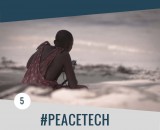Crime in the Global Economy: Profit, Survival, and Rule
Last year, authorities seized 1,300 kilograms of cocaine in Paris from an Air France fl originating from Caracas. In 2009, drug smugglers unloaded 10,000 kilograms of cocaine in Gao, Mali for transport to the European market from a Boeing 747 that took off from Venezuela. Both of these incidents reflect the nature of modern transnational organized crime in several respects. One of these is the magnitude of illicit material. The Paris flight alone carried an estimated street value of 200 million euros, or roughly ten percent of the GDP of Liberia, worth of cocaine. The brazen nature of both events also makes it clear that official complicity in origin countries is highly likely, given the difficulty of loading such quantities of drugs onto a plane without raising suspicion. Additionally, the origin and destination of the flights capture the dynamic of global demand and supply that propels much of today’s organized crime.
What these episodes do not tell us is that organized crime has a major influence on violence and conflict worldwide. Homicide rates in Latin America, the epicenter of the drugs trade, can exceed the casualty figures of civil wars. Meanwhile, the fortunes generated by organized crime fuel corruption, terrorism, and exploitation. Yet those actually producing the illicit goods profit the least and often continue to face dire poverty and poor governance. In the case of drugs, military-style eradication programs often exacerbate the situation. Whether organized crime is on the increase is difficult to assess, but that it is substantial in scope and here to stay is unquestionable.
Organized crime can only be understood within the context of economic globalization and current levels of inequality. These circumstances are, in part, what transformed cross-border smuggling and local protection rackets into transnational drug networks and a global trade in counterfeit goods and human beings.
Over the last few decades, globalization has significantly increased the scope and volume of transnational connectivity and commerce. It has also connected supply and demand for illicit resources, products, and services between richer and poorer parts of the world, and not by chance. Western banks such as Standard Chartered and HSBC, financial intermediaries, and poor compliance with the Financial Action Task Force recommendations to reduce money laundering by the Organization for Economic Cooperation and Development (OECD) play a significant role. In other words, organized crime is not just a consequence of globalization; it is an integral component and some of its architects are, wittingly or unwittingly, developed countries.
To address the problem, a global focus on the supply, transit, and demand of trade is warranted. Current practice, though, largely reflects the preferences of richer, more developed countries. One of the more extreme examples of this propensity is how the international drugs prohibition regime emphasizes reducing supply through a zero-tolerance law enforcement approach, ignoring the conditions that help generate supply and facilitate transit. The consequences include a tightening of supply which, given stable demand, pushes up both prices and violence in production and transit countries.
Additionally, any approach must take social and political contexts into account. The global increase of inequality, as highlighted by the recent work of Oxfam and Thomas Piketty, perpetuates a situation in which hundreds of millions of people continue to live in abject poverty and social divides in many countries have intensified and become structural. The ramifications are twofold. First, a ready army of producers, brokers, couriers, and forgers can be recruited for criminal purposes, which allows shifting the main risks onto those who gain the least from organized crime. The miserable story of those who navigate narco-subs across the Caribbean illustrates this well. Second, absent better prospects and in the face of low levels of social capital between groups in some environments, crime has become a legitimate, even respected, activity.
In short, the challenge is not how to eliminate transnational organized crime but rather how to minimize its most harmful consequences, especially violence.
Environments characterized by contested statehood and conflict must be considered against this backdrop. The possibility and profitability of transnational organized crime are both relatively high, either because of lower levels of regulatory capacity, social cohesion, and higher corruptibility, or because the resources acquired through illicit activities are easily used to gain political and economic power. Pre-2012, Mali illustrates well how central elites worked with illicit networks to govern, benefit financially, and sustain their hold on power. The global embedment of these environments magnifies opportunities for profit; stark inequalities in the face of poverty enable criminals to establish a socially attractive, and at times legitimate, way of life.
Talk among developed countries, conveniently sidestepping their own role, is of a tidal wave of crime. Reality is both more reassuring and more alarming. It is reassuring because these countries have the means to reduce the influence of crime on politics and the formal economy, monitor how it penetrates society, and minimize its social harm. It is also alarming because organized crime is more akin to a parasite than to a tidal wave—in perfect symbiosis with its host and therefore more difficult to detect.
Three broad actions are indicated to address this complex reality at the global level:
1. Ensure stringent enforcement of regulations, in particular pertaining to the diligence and record-keeping obligations of financial intermediaries, so that laundering profit becomes more difficult. We know what needs to be done, but powerful lobbies and profit stand in the way.
2. Take extreme care in strengthening law enforcement on the front line of fighting organized crime in fragile countries (the Economist’s problematic approach to terrorism is not to be emulated), because the elites of these countries are often complicit.
3. Increase development cooperation to address organized crime, but focus on reducing violence and increasing social stability, possibly on the basis of the New Deal for Engagement in Fragile States combined with a thorough understanding of the local political economy and its global entanglements.
These steps will not, as the United Nations Office on Drugs and Crime (UNODC) would have it, “put them out of business,” but they will emphasize reducing global socio-political harm.

